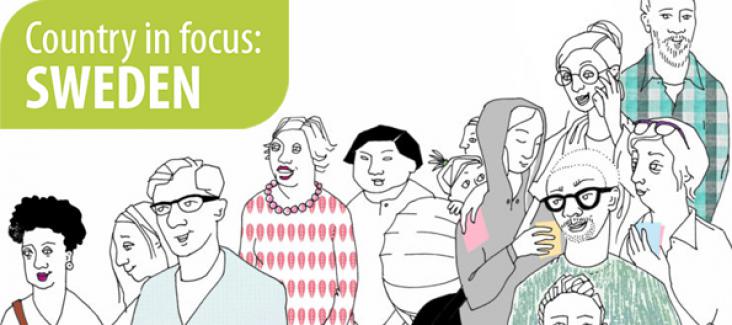Could you tell us a little about your organisation Demokratiskolan? What are your main goals?
The main goal is to increase awareness and knowhow about democracy tools in Sweden, such as citizens’ initiatives and citizens’ dialogues. My background is in the adult education sector. In Sweden, this has been around for over a hundred years to help private citizens to increase their level of civic education. We have more than a dozen such educational organisations in Sweden and Demokratiskolan is a project under one of them. It is specialized in helping people get engaged in and involved with the political process.
In fact, we have great challenges with our political culture in Sweden, especially at the local level, where our local political leaders are surprisingly old-fashioned when it comes to participatory democracy. Only 18% of our mayors are interested in citizen-engagement at all. There are also no authorities in Sweden that inform and educate people on these subjects. If you want to start a local citizens’ initiative, you have no place to go and ask. The information is there but it is very poor.
Our goal is to increase the knowhow and to spread this information, it is above all a communication effort. We just want to create awareness about what already exists. When the citizens’ initiative law entered into action in 2011, citizens’ initiatives were started almost immediately. Citizens used the tool as a protest against school reform. The government had shut down small local schools in the entire country, exactly around the same time as the new law about these citizens’ initiatives. So there was a clash between the politicians and the people, instead of seeing it as a tool they could use to communicate better with each other.
Since then, do you feel that the citizens’ initiative has evolved, do people feel differently today?
Not really, there still is a very low level of awareness about it, people don’t know it exists… Well, I guess it has gotten a bit better. The issue with the local schools kick-started the citizens’ initiative and contributed to more awareness, but it was still a very bad start. Our new project, Folkinitiativ.se is focussed solely on the citizens’ initiative and referendum, where Demokratiskolan was more of a broad look at participatory democracy.
Yes, you’re launching your new project Folkinitiativ today!
Yes, at the Falun Democracy Week!
So what are some of the key points that you and your organisation think that should be improved about the citizens’ initiative?
One is to increase political respect for the decision of the people, today politicians often don’t really abide by the outcome. Even if people get a popular vote through all the way, politicians don’t care about the result, as formally local referendums are only advisory. So, one of our goals is to reinforce the de-facto binding character.
Another one is to help all of these initiatives that are launched to fulfil the demands and administrative rules. They have put in place huge administrational demands to shut these initiatives down, so we educate organisers on how to use the citizens’ initiative. We want all the initiatives to go to the next level, so they lead to a popular vote. The rule for that is that you need to collect signatures of 10% of the citizens.
You are also handing out the Demokratirosen prize for the first time today?
Yes, it’s a new prize for the best citizens’ initiative in Sweden.
How do you decide which is the best citizens’ initiative?
We look at if they have developed a process that make the citizens’ initiative better in some way. In reality, there is of course no real manual on how to organise a citizens’ initiative, so we look at organisers that have come up with good practice. Another criterion, is whether they managed to convince a lot of people. It also needs to be about an issue that is good for everyone; the instrument shouldn’t be used as a tool to discriminate people.
Which initiative won?
It is an initiative from Vaxholm, in the Stockholm archipelago. Here, some very active and committed citizens have proposed to develop an old school complex into a cultural center, while the majority in the local government want to destroy the buildings and build hundreds of appartments. A first initiative attempt was invalidated by the municipality, so they needed to gather at least 10% of the electorate in the second attempt – and they succeeded. Now on September 10th, more than half of all citizens in Vaxholm participated in a popular vote and suppported the proposal of the citizens’ initiative. A wonderful success for modern direct democracy in Sweden and a worthy winner of the Democracy Rose award this year.
One last question, based on the Swedish experience, are there any improvements that you could suggest for involving citizens in Europe? Are there any lessons to be learned for the European Citizens’ Initiative?
I think the basic situations are very different, the European Citizens’ Initiative needs to be more of a transnational network organisation. You can’t compare them. In Sweden, we can engage on small issues, in small villages and cities.
But the other way around: what we really want, that the ECI already has, is the possibility to sign citizens’ initiatives electronically! That would take this to another level. Now, you have to stand on the pavement, it’s hard work: standing outside shopping centres and collecting signatures. We should organise it so that they can do it on the internet, that would be a big improvement. It would open up possibilities, an increase the number of potential signatories.

